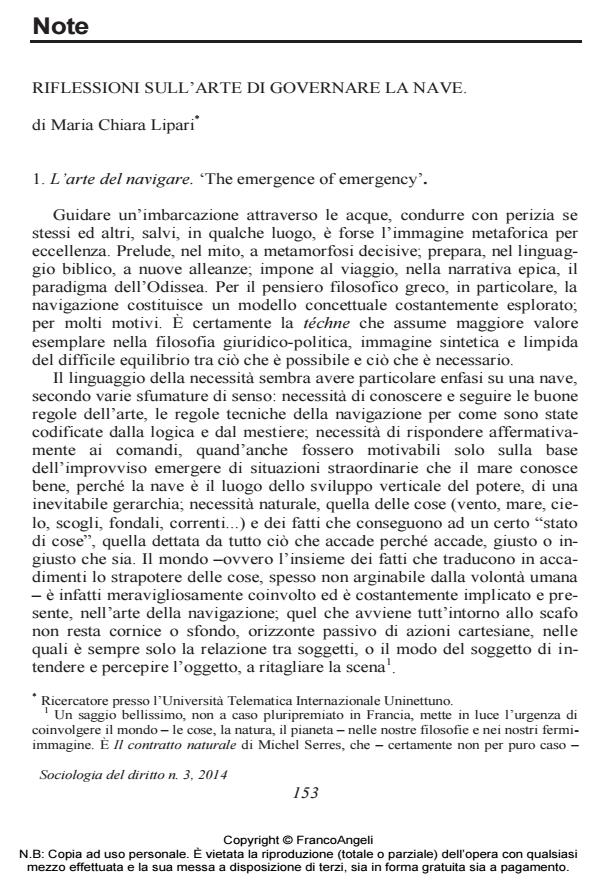Notes on the art of steering the ship
Journal title SOCIOLOGIA DEL DIRITTO
Author/s Maria Chiara Lipari
Publishing Year 2015 Issue 2014/3
Language Italian Pages 17 P. 153-169 File size 134 KB
DOI 10.3280/SD2014-003008
DOI is like a bar code for intellectual property: to have more infomation
click here
Below, you can see the article first page
If you want to buy this article in PDF format, you can do it, following the instructions to buy download credits

FrancoAngeli is member of Publishers International Linking Association, Inc (PILA), a not-for-profit association which run the CrossRef service enabling links to and from online scholarly content.
This article discusses the two classical metaphors of thinking in the philosophy of law and the philosophy of politics: the ship stands for the body politic, while steering is the art of holding the tiller and guiding the vessel, whose etymology is linked to the art of ‘governing’. In Greek culture, navigation was a stochastic technique, whose purpose was to reach a goal and which was nearly always linked to the science of medicine. Many are the suggestions that this metaphor and these links bring to mind. In particular, the essay focuses on the clear meaning that the idea of necessity takes on when at sea: the need to apply the rules of the art, but also the need to break them when exceptional circumstances call for it, and, lastly (the field that law always seems to forget), the need to submit to the preponderant force of external elements and to take them into consideration in something akin to a new natural contract
Keywords: Navigation, Necessity, Steering, Technique, Circumstance
Maria Chiara Lipari, Riflessioni sull’arte di governare la nave. in "SOCIOLOGIA DEL DIRITTO " 3/2014, pp 153-169, DOI: 10.3280/SD2014-003008